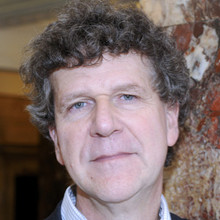
Monday's Dispatches programme on Channel 4, presented by the Telegraph's Peter Oborne, was both an outstanding and frightening piece of television journalism. It ought to be required viewing for every media and journalism student in the country.
What made this analysis so devastating was its scope: Oborne moved beyond the narrow issue of the News of the World phone hacking story, and even beyond the involvement (or not) of the Conservatives' communications director and former NoW editor Andy Coulson. He painted a profoundly disturbing and highly credible picture of blatant intimidation of press, police and Parliament by a burgeoning media empire with overt threats of personal tabloid "revelations" as the weapon of choice. Even David Hare couldn't make it up.
Having found yet another NotW journalist claiming that Coulson must have known about illegal phone hacking – and thus increased the likelihood of Coulson's early departure from the Cameron circle – the programme moved on to much bigger questions: why have the police not been investigating what appears to be widespread illegal practices? Why has their been so little press coverage? And why have Parliament and government been so supine in tackling an issue of fundamental public interest? All the answers point in one direction: the unchecked power and influence of Rupert Murdoch and his News International empire.
Let's start with the police. It's worth remembering the scale of illegal activity which was uncovered in 2006 by the Information Commissioner's "Operation Motorman". To quote from his report, even as claims were being made about improving journalistic standards, "….many newspapers were continuing to subscribe to an undercover economy devoted to obtaining a wealth of personal information forbidden to them by law." This underworld of criminal activity resulted in just two convictions.
Why? Because, suggested the programme, there is a mutually beneficial relationship between the tabloid press (particularly the NotW) and the police: News International papers publish positive stories about the police; some stories have actually been set up by the NoW and subsequent arrests covered by them exclusively; Rebekah Wade, while editor of the Sun, unwisely admitted to a parliamentary committee that they had "in the past" paid the police for stories.
On the programme, Guardian journalist Nick Davies quoted his own sources from within Scotland Yard: "they will tell you that there was a constant and articulated fear that if we pursue this investigation too hard…. we are going to alienate the most powerful newspaper group in this country and we don't want to do that".
Then there's the deafening silence from the country's press. In any other industry, revelations of widespread illegal practices would be condemned as a major national scandal. But the News International papers – which command 37 per cent of the country's national press – are predictably silent, while many other papers are too implicated for their own comfort. Hence, the baton has fallen mainly to the small circulation Guardian, Independent and Financial Times.
Finally, and most worrying of all, is the abject failure of parliament and government to stand up to Murdoch. John Prescott admitted on the programme that Labour was scared of alienating News International in advance of the election. Within a week of taking office, Cameron was entertaining Murdoch via Downing Street's back door.
Now we know that Members of Parliament, too, were cowed into submission. According to Plaid Cymru MP Adam Price – a member of the Commons culture select committee which last year investigated the phone hacking allegations – committee members did not compel News International Chief Executive Rebekah Brooks to give evidence because of fears that journalists would delve into their personal lives.
And MP Tom Watson told Oborne that former ministers are not prepared to go public about having their phones hacked "because at the moment they feel frightened and intimidated by News International".
What can be done? First, the mushrooming empire of Rupert Murdoch and its corrosive influence on British public life must be reined in. Business Secretary Vince Cable is currently pondering whether to refer Murdoch's bid for complete control of BSkyB to the competition authorities. He must put the public interest before the government's.
Second, Parliament's powerful Standards and Privileges Committee, which has decided to investigate phone hacking of MPs, should broaden their inquiry to cover all illegal and unethical journalistic practices – not just hacking, but the routine trafficking of confidential information such as vehicle, health, telephone and tax records.
Finally, let's applaud Channel 4's courageous exposure of the British establishment's spineless response to this unprecedented abuse of media power. And let's hope that it presages a broader understanding by the British public of the widespread fear being generated by a media empire ultimately controlled by one man. I suspect they would be appalled.
Free daily newsletter
If you like our news and feature articles, you can sign up to receive our free daily (Mon-Fri) email newsletter (mobile friendly).
Related articles
- DCMS-backed media literacy programme is supporting vulnerable internet users
- Tip: Lessons from the Guardian's membership model
- 12 broadcasters commit to helping viewers make greener lifestyle choices
- How should the media cover COP26 and climate change long-term?
- 'Brexit bump' or news avoidance? Here is how Brexit has affected the UK press









